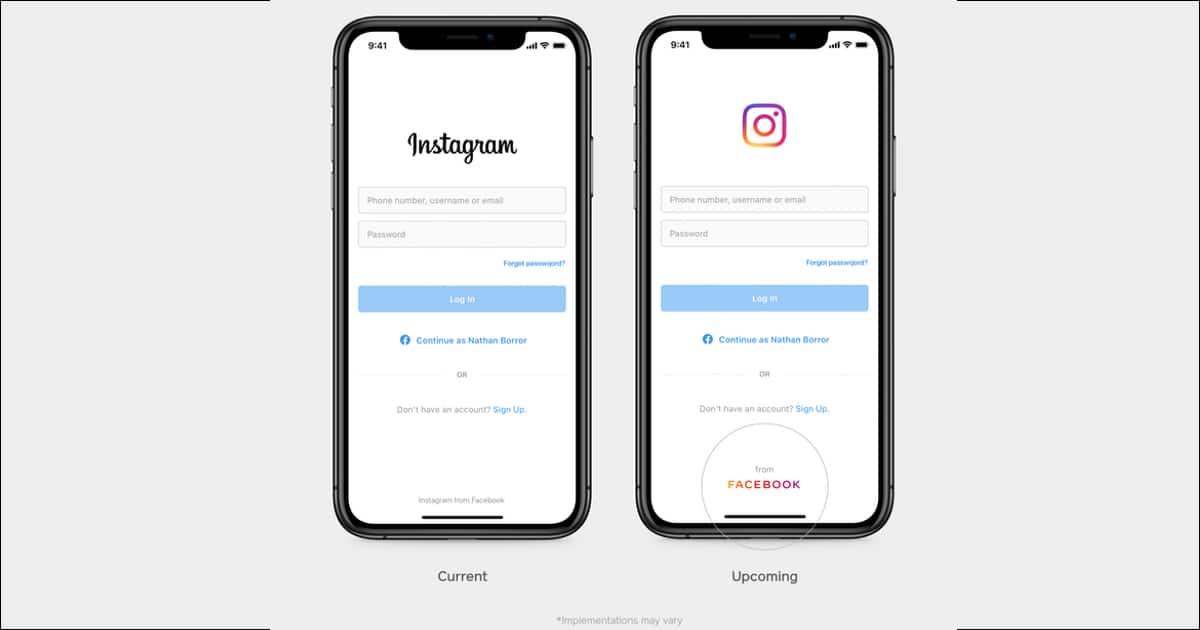The latest cover in the media buzz around Apple TV+ is on Grazia, with a positive feature about Jennifer Aniston and Reese Witherspoon.
App Sale: Right Now Affinity Photo is just $9.99
Adobe recently released Photoshop on the iPad. If you’re not happy with it you might like to look at an alternative called Affinity Photo. Right now it’s 50% off at US$9.99, whereas after a 30-day trial Photoshop is US$9.99/mo.
Photo for iPad offers an incredibly fast, powerful and immersive experience whether you are at home, in the studio, or on the move. With meticulous attention to detail each tool, panel and control has been completely reimagined for touch. All rendering, adjustments, brushes and filters have been fully hardware accelerated using Metal. The result is an all-new way to interact with your images, with performance you will find hard to believe.
You Shouldn't Restart Your Computer if You Have a Virus
Security experts say that if your computer has been infected with malware you shouldn’t restart it, especially if you suspect ransomware.
A Closer Look at Xiaomi's Apple Watch-like Wearable
Xiaomi has unveiled a wearable called the Mi Watch that is eerily similar to the Apple Watch. Cult of Mac broke down some of its rather impressive features. However, it is currently only available in China.
The device, which starts at $185, runs a skinned version of Google Wear OS. This is packaged into a form factor with the familiar rectangular display, digital crown and pill-shaped button of the Apple Watch. In terms of tech spec, the Mi Watch reportedly boasts a 1.78-inch AMOLED display and 36-hour 570mAh battery. There’s also 1 GB of RAM, 8 GB of internal storage, and a Qualcomm Snapdragon Wear 3100 processor. In addition, users get NFC tech, Bluetooth, WiFi, eSim support, and a heart rate monitoring feature. Other health-tracking tech will include blood oxygen sensor, sleep and exercise tracking, “body energy monitoring” (whatever that is), and waterproofing for measuring your swims.
Jack Dorsey from TWITTER Mocks FACEBOOK New Branding
Twitter CEO Jack Dorsey does not seem to be that impressed by Facebook’s new branding. He sent a rather mocking tweet, Bloomberg News noticed.
Twitter CEO Jack Dorsey poked a bit of fun at Facebook Tuesday morning by seemingly imitating the new “Instagram from Facebook” and “WhatsApp from Facebook” branding.
Facebook unveiled the new branding Monday that aims to make the Facebook brand recognizable in the products it owns.
How Apple's Success Changed an OS Myth
A great feature on AppleInsider tracked Apple’s dramatic rise. It also showed how that rise helped counter the myth that the OS platform was the only important factor in picking who won the tech wars.
Apple somehow regained market power and began selling new volumes of Macs, assisted by the support of new sales of mobile devices. That dramatic shift, which resulted in Apple completely turning the tables on Microsoft, began in less than a decade after Windows 95. In the early 2000s, Apple’s iPod made an appearance that many discounted as irrelevant. Just as Windows 95 couldn’t immediately compete in Apple’s core markets, iPod similarly wasn’t competing with Microsoft’s bread and butter Windows PCs; instead, it was opening up a new market for very personal mobile devices, with media features and prices Microsoft and its licensees were unprepared to match. By 2004 iPod had trampled Microsoft’s Windows Media Player and PlaysForSure “Portable Media Player” platforms. Three years later iPhone similarly crushed global Windows Mobile handsets almost immediately out of the gate. Three years after that, the iPad not only crushed the emergence of Windows Tablet PCs and netbooks but also destroyed any future growth of PC sales.
Like an Addict Facebook is Chasing Even More of Our Data, Now With Facial Scans
Researcher Jane Manchun Wong found that Facebook is working on facial scans called “facial recognition-based identity verification.” It would ask users to upload a selfie of them looking in different directions before they can access their account.
On that same screen and later in the actual video selfie process, Facebook notes that “no one else will see” the video selfie you submit to them and says the video will be “deleted 30 days after your identity is confirmed.”
Deleted after 30 days. Based on Facebook’s past actions we can safely assume it will do the exact opposite. There’s not much room for giving them the benefit of the doubt.
Bernie Sanders Criticizes Apple's California Housing Plan
Bernie Sanders is criticizing Apple’s US$2.5 billion California housing plan, saying the tech giant helped create the housing crisis.
How the Internet Archive Makes Wikipedia More Reliable
Many of Wikipedia’s citations are from books, and to check the book citation against the article requires that you hunt down the book. But now the Internet Archive is making the process easier.
Now, thanks to a new initiative by the Internet Archive, you can click the name of the book and see a two-page preview of the cited work, so long as the citation specifies a page number. You can also borrow a digital copy of the book, so long as no else has checked it out, for two weeks—much the same way you’d borrow a book from your local library.
TMO Contributor Kelly Guimont (#8) - TMO Background Mode Interview
Kelly Guimont is a long-time podcaster, Contributing Editor for The Mac Observer, the host of the Mac Observer’s Daily Observations podcast, a tech support guru, and a Founding Volunteer of App Camp for Girls.
Kelly first appeared here in December, 2015 to tell her career story and has returned many times for interesting discussions. In her 8th appearance, we chat about our favorite TV shows of late. Kelly: Fleabag (Amazon), The Politician (Netflix), and Billions (Showtime). John: Madam Secretary (CBS), Toy Story 4 (Pixar) and Victoria S3 (PBS). Join us as we explore together what’s great about these shows.
Aura Meditation App Premium 1-Year Subscription: $39.99
We have a deal on Aura Premium, from the Aura Health app. This mobile app is designed to relieve stress and anxiety by providing short mindfulness meditation exercises every day. 1 year of access is $39.99 through our deal. There are longer terms available on the deal listing, too.
Why You Should Wait a Bit Longer to Install macOS Catalina
Dr. Mac says that macOS Catalina is causing more issues than any macOS upgrade in recent memory; read Dr. Mac’s Rants & Raves Episode #355 for the gruesome details…
TV+ First Look Reviews – TMO Daily Observations 2019-11-04
Today John Martellaro, Bryan Chaffin, and Charlotte Henry join host Kelly Guimont to discuss the Apple TV+ shows they watched on the weekend.
Facebook Profits on Manipulating Us, an Insider Reveals
Writing for The Washington Post, Yaël Eisenstat writes about paid political advertising at Facebook and how the company profits off of manipulation.
The “culture of fear,” nasty political campaigns and amplified extreme voices are not new in American society. But the scale to which these platforms have fueled and exacerbated this by using our emotional biases to keep our eyeballs on their screens, to vacuum up our data and sell their targeting tools to advertisers, has tilted the playing field toward the most salacious and fanatical voices.
adidas Originals Launches New iPhone 11 Case Collections
adidas Originals is launching Fall and Winter iPhone 11 case collections. Both stylish and protective, the cases are available online.
Stephen King Appears to be Enjoying 'The Morning Show'
Horror author Stephen King appears to be enjoying his Apple TV+ subscription, praising ‘The Morning Show’ on Twitter.
What to Look For When Reading a Privacy Policy
Yael Grauer wrote a useful guide on what to look for when reading a privacy policy, such as length, updates, and more.
While you shouldn’t feel compelled to read your apps’ and services’ privacy policies word for word—boring!—there are still a few key criteria you should look for while you’re skimming. Yes, skimming; you shouldn’t ignore privacy policies completely, because it’s important to know what’s being done with (or to) your data.
I also use two tools called Polisis and PriBot. These are automated tools that break down a privacy policy for you.
Watch a Trailer for Apple TV+ Movie 'The Banker'
Apple uploaded a 2.5 minute trailer for The Banker on YouTube starring Samuel L. Jackson. It’s set to be released on December 6.
Setapp for Teams Public Beta Launches
Independent Mac subscription service Setapp unveiled a public beta of Setapp for Teams, which will launch in full in early 2020.
Facebook Updating Branding to Provide Clarity Across Instagram And Other Apps
Facebook announced Monday that it will update its branding across its range of products. The company said the move is a bid to provide greater clarity.
People should know which companies make the products they use. Our main services include the Facebook app, Messenger, Instagram, WhatsApp, Oculus, Workplace, Portal and Calibra. These apps and technologies have shared infrastructure for years and the teams behind them frequently work together. We started being clearer about the products and services that are part of Facebook years ago, adding a company endorsement to products like Oculus, Workplace and Portal. And in June we began including “from Facebook” within all our apps. Over the coming weeks, we will start using the new brand within our products and marketing materials, including a new company website.
Adobe Announces Photoshop Camera App
Today Adobe announced a Photoshop Camera app that gives you plenty of photo effects and lenses and preview them before you take the shot.
Scroll through tons of insta-worthy lenses and effects to apply before or after the shot. It’s really easy to swap them in and out, so you don’t have to worry about changing your mind. And you can keep your favorites to use again and again.
Photoshop Camera is packed with amazing AI-powered features that help you take gorgeous selfies, food and scenery shots, and more. Quick fixes like portrait relighting and distortion removal mean you can post images that look like you spent way more time on them than you did.
It’s not available for release yet but you can sign up to try to test it.
Apple May be Partnering With Valve on AR Headset
Apple is said to be developing an AR headset with Valve, the game developer behind the Steam platform. MacRumors picked up on a report from DigiTimes:
DigiTimes is reporting this morning that Apple has partnered with U.S. game developer Valve to develop its rumored AR headset, which is expected to launch next year. ‘Apple reportedly has partnered with US game developer Valve to develop AR head-mounted display devices, which may be released in the second half of 2020 at the earliest, with Taiwan’s ODMs Quanta Computer and Pegatron said to handle the assembly job, according to industry sources.’ Creator of the popular Steam digital storefront and delivery platform, Valve launched Steam machine consoles in 2015 and released its first VR headset, Valve Index, in April 2019. Notably, Valve worked with Apple in 2017 to bring native VR headset support to macOS High Sierra, leveraging the operating system’s then-new eGPU support with a Mac version of Valve’s SteamVR software. However, Apple’s latest partnership with the company is said to be focused on AR, not VR.
Microsoft Announces All-In-One Office App for iOS
Today Microsoft announced a new app called Office. It combines Word, Excel, and PowerPoint into a single app.
Fix Certain Photos Not Loading in iCloud Drive by Converting Them
Andrew noticed with iOS 13 that long, vertical photos wouldn’t display correctly in iCloud Drive and Apple Notes. But he found a solution.






















